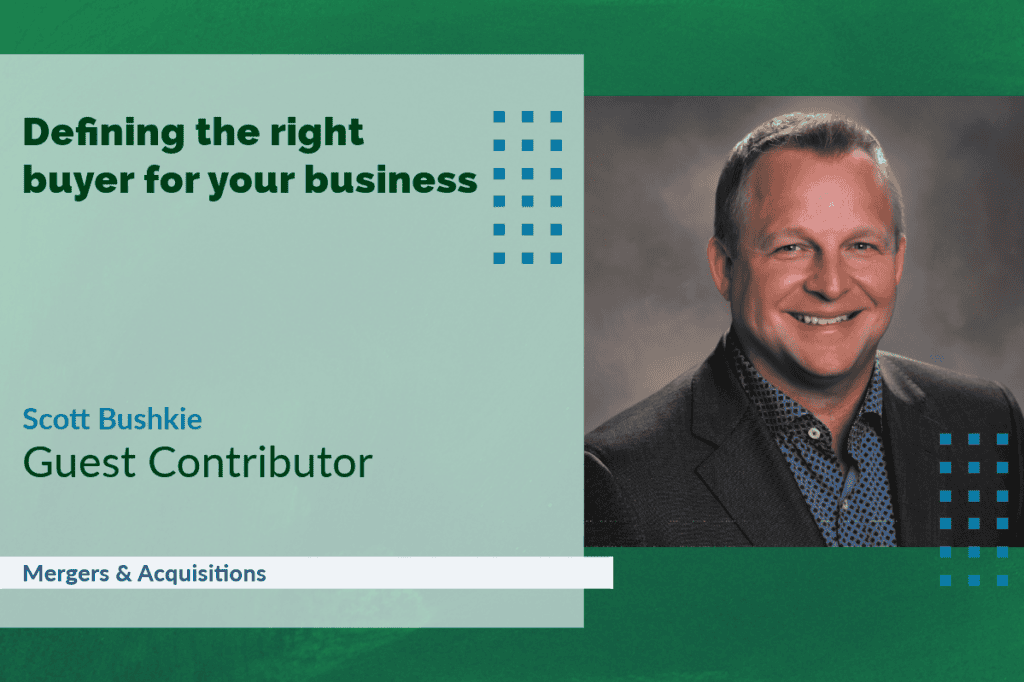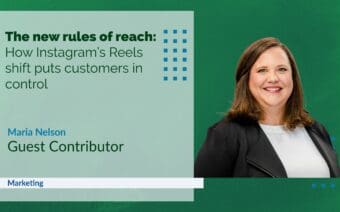
February 24, 2025
Selling your business starts with this critical mindset – you’re not just looking for any qualified buyer, you’re looking for the ideal buyer.
Your business represents years of dedication, careful decisions and relationships built with employees, customers and communities.
The right buyer isn’t just bringing capital to the table – they’re stepping into a legacy that you’ve built through commitment and hard work.
Determining what kind of buyer is the right fit for that legacy is key to achieving the best outcomes.
Success means not only getting the best value for your business but also meeting other goals that extend beyond the purchase price.
These might include protecting employee jobs, maintaining rental income or participating in future value creation.
Starting your search with a well-defined buyer profile helps your M&A team target their search and marketing efforts effectively, identifying the most promising prospects early in the process.
Ultimately, it strengthens your negotiating position by helping you articulate what you want most out of a deal and how specific buyers can deliver on those goals.
Financial capability
Any buyer must have the financial wherewithal to complete the deal.
Your M&A advisor will assess potential buyers’ access to capital, including their ability to secure financing.
This up-front due diligence should examine the buyer’s financial health along with their track record of completing similar-sized transactions and staying true to their offers.
This evaluation can extend beyond the purchase price to include working capital needs and future investment requirements that will ensure the business’s continued success.
Cultural fit
The right buyer typically shares your fundamental vision for the business and respects the company culture you’ve cultivated.
They understand the importance of preserving the characteristics and values that have made your business successful.
Consider management style, decision-making processes and workplace norms.
A significant cultural mismatch can derail integration efforts, jeopardizing your legacy, as well as any earnouts or performance payouts you may have negotiated.
Industry experience
Buyers with relevant industry experience often make better partners.
They understand market dynamics, regulatory requirements and operational challenges.
This knowledge typically translates into smoother transitions.
In select circumstances, a buyer can be taught the business, but this may mean you’ll need to stay involved longer to show them the ropes.
Strategic fit
Consider how your business complements the buyer’s existing operations.
Strong strategic fits often lead to higher valuations and better outcomes for all parties.
Consider potential synergies in operations, market access or technology.
A buyer who can leverage your business’s strengths to create additional value will often prove more motivated to close a deal.
Transition time
Transition requirements can significantly impact buyer selection.
Some owners want quick exits, while others are willing to support gradual transitions spanning months or years.
Industry complexity, management team depth and buyer experience all affect optimal transition periods.
Strategic buyers with industry experience may need minimal transition support, while financial buyers, or those new to the industry, typically require longer handoffs.
Be realistic about your desired exit timeline and ensure potential buyers’ expectations align with yours.
Goal alignment
Many business owners have goals that extend beyond getting the highest value for their business.
Some prioritize maintaining local operations and preserving jobs in their community.
Protecting key employee relationships often ranks high on sellers’ priority lists.
Some owners are looking for ways to help their valued management team or family members gain an equity stake in the business.
Finally, some owners also seek to participate in future growth through retained equity or earnout structures.
Real estate decisions (e.g., will the buyer buy, lease or relocate) also play a role.
By carefully considering these criteria before beginning your search, you can focus your efforts on finding buyers who truly align with your vision for the business’s future.
That means not only finding the buyer who will bring in top dollar – but also someone who will respect and enhance your company.
 Facility dog comes to Marshfield Children’s Hospital
Facility dog comes to Marshfield Children’s Hospital Inspiring the next generation of female construction workers
Inspiring the next generation of female construction workers








